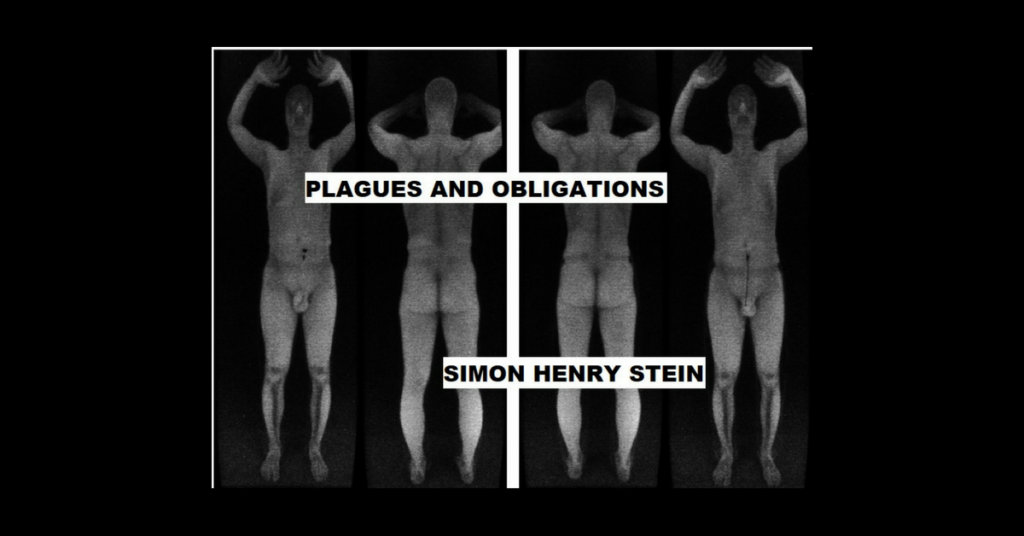After nine days of nights, I went. On each of those nights I hadn’t gathered more than four hours of sleep, adrift still-dressed from the previous day on a bed that used to boast plural ownership. On three or four of those nights, I twisted toward the ceiling and tried to mumble a prayer or blessing so quiet it wouldn’t bother anyone, not even me, but failed. Baruch atah Adonai––blessed are you, Lord. That’s as far as I would get. There’s even a prayer to wake up having slept without sleep greeting death halfway, the Hashkiveinu. I don’t remember the words, only one of the melodies. I remember a lot of things from when I was young; words are not one of them. Failing to start the engine on a prayer, sometimes I’d twist to the side and whisper a fact: two years and I still don’t know if that’s his real name. I’d also sometimes try to decide whether shadows could be considered a subcategory of night, or the other way around. I never could.
The days between the nights were crowded with various shadows, sometimes in the form of small refusals I could present to myself as if ceremonial offerings or in the form of translucent avoidance that gave my coworkers the gift of not having to ask, but mostly in the form of lessons in reluctance, alone in my office, door locked, shirt sleeves rolled up, braced against the desk lost in something between vertigo and nausea and tremors and unattached grief I was reluctant to give a name. When I was younger but not young I learned reluctance isn’t just a vocabulary but an entire language, and that while speaking it fluently made me feel better, it wouldn’t help me make myself understood. The recent past: I didn’t learn much else. I learned how to manufacture importance (but was unsuccessful) and I learned the difference between hopes and expectations (I don’t remember what it is) but I learned fewer names than I should know. Awake at night in a bed that isn’t entirely mine and is sometimes partly a stranger’s, bought by the stranger at an outlet down on 76th St., a store with big-enough windows to disguise its real identity as a warehouse, I would sometimes search for what it is that wasn’t a name. Some important thing. Actions, maybe, I thought for a few days, until deciding even actions were names. Names could not be escaped.
I met him two years ago at a fundraiser. Met him and was introduced. He told me he admired my tie, a quiet, unironic bowtie. Wearing them helped me know how quickly I could ignore men who commented on them depending on the shape of their descriptions, the hesitation or smugness slid beneath their queries, their explanations for bringing it up. “Met” is an action, not a name, though he never used the word when we used the bed for stage whispers. Found. “I’m so glad I finally found you,” he said. I wanted to imagine a younger version of him roaming the Earth, using his thick hands to help describe an outline of who I might be. I wanted to imagine this but could not. I could imagine the plagues retold every spring, but couldn’t recall all of them, or even how many. I remembered blood. I remembered a plague of complete darkness but couldn’t remember how it had arrived. I remember the rabbi always pausing to ask us all why we thought God hardened Pharaoh’s heart.
On the tenth day, thinking something soft about plagues and blood and children I’d never have to worry about providing names that would make them sound successful, I peeled a lunch hour away from my Tuesday early and walked seven blocks from the building where I worked to the building where he worked without bothering to button my coat in the January wind, and ask I walked my misgivings began to solidify into more reluctance, familiar and uncomfortable like a wool sweater worn because it was the gift of a person encountered often. I stood in his building’s expensively empty gray lobby, hands in my pockets, thinking of whether one swipe of blood on the door would’ve been enough, back then, to be avoided, to be left unembraced, and readied myself to turn heel in order to paint my own door. When the elevator opened and he walked over to me, I forgot what my plan had been. I think I had wanted to ask him his name. Instead I told him I forgave him. I told him I almost forgave him. I want to forgive you, I told him, but I don’t know who you are. He watched me wait, and all he said is this: More than words, he said. More than words is how much.
I let him kiss me and I told him more than words was close enough. I even believed it, at least for a few years. I believed it for long enough to maintain warmth momentum through a yearlong storm of illness the specialists could never name, all of them whispering “stress,” I believed it until I was free to move west to a larger, less-icy city where I hoped no one had been searching for me but, when people did meet me, I’d say yes when they asked me if I tied the tie myself, and when they would ask my name and I would ask theirs, most of the time neither of us would lie.

